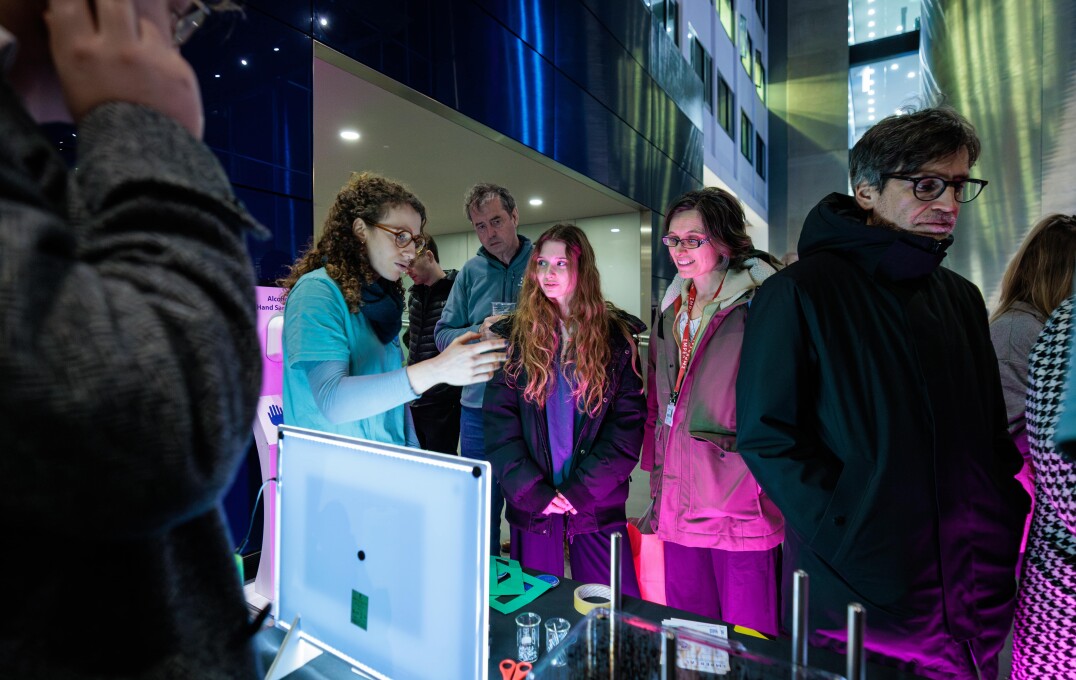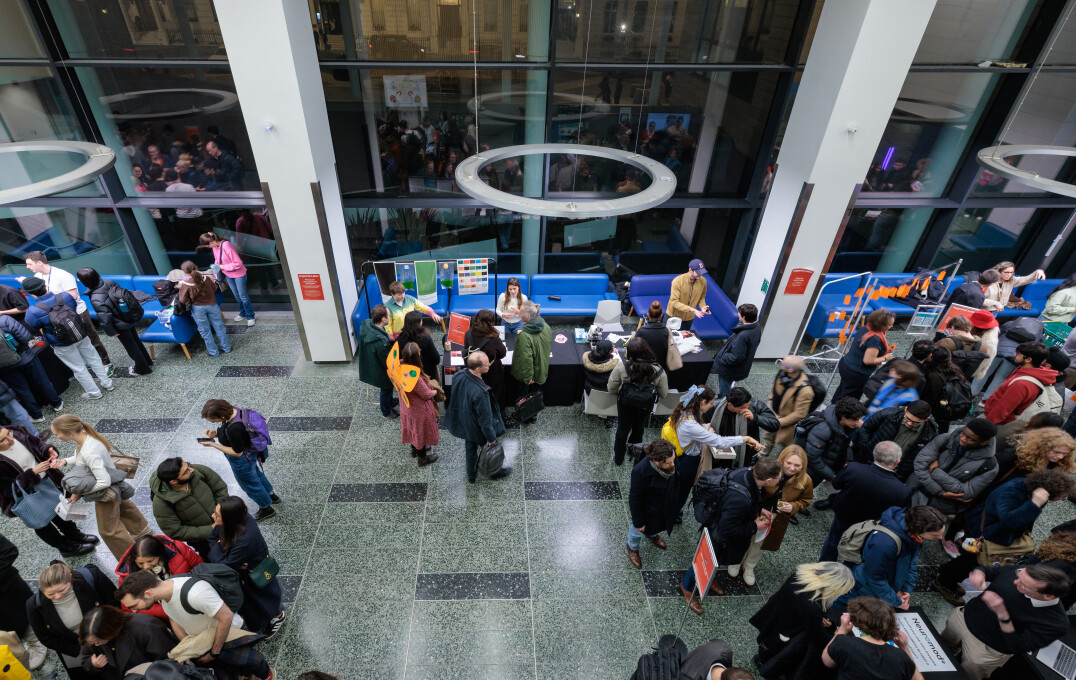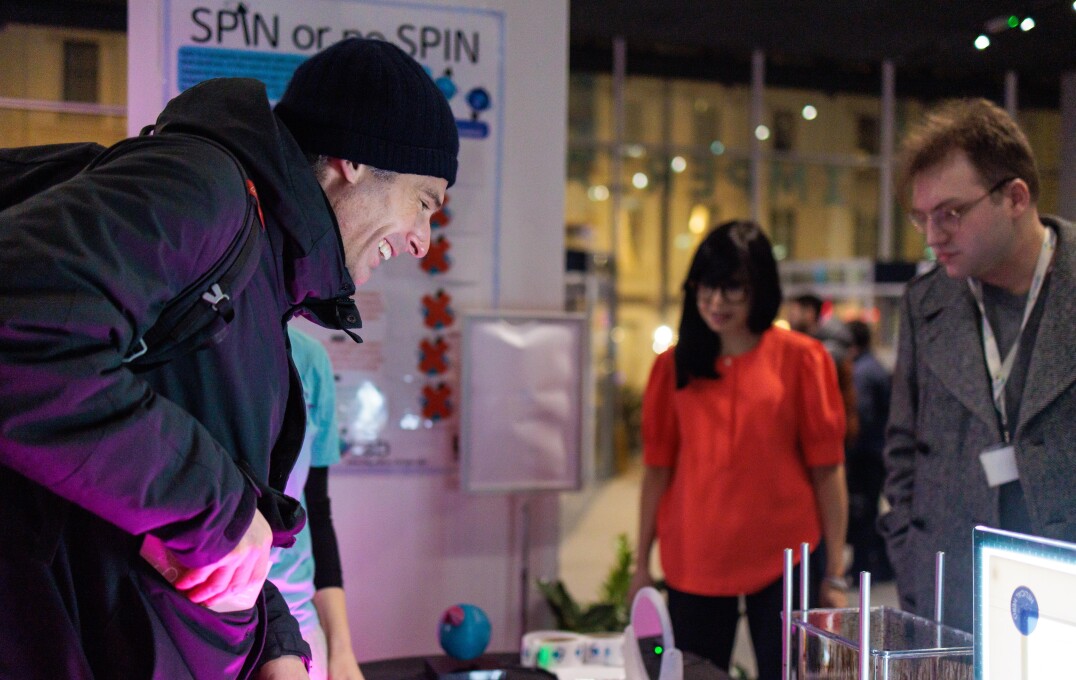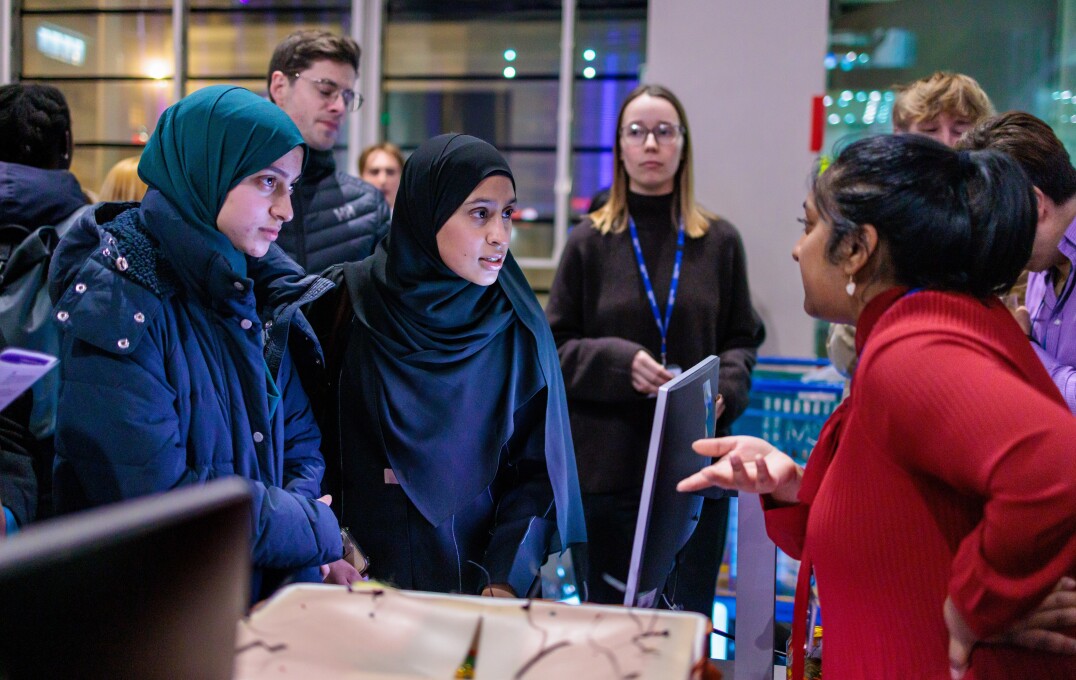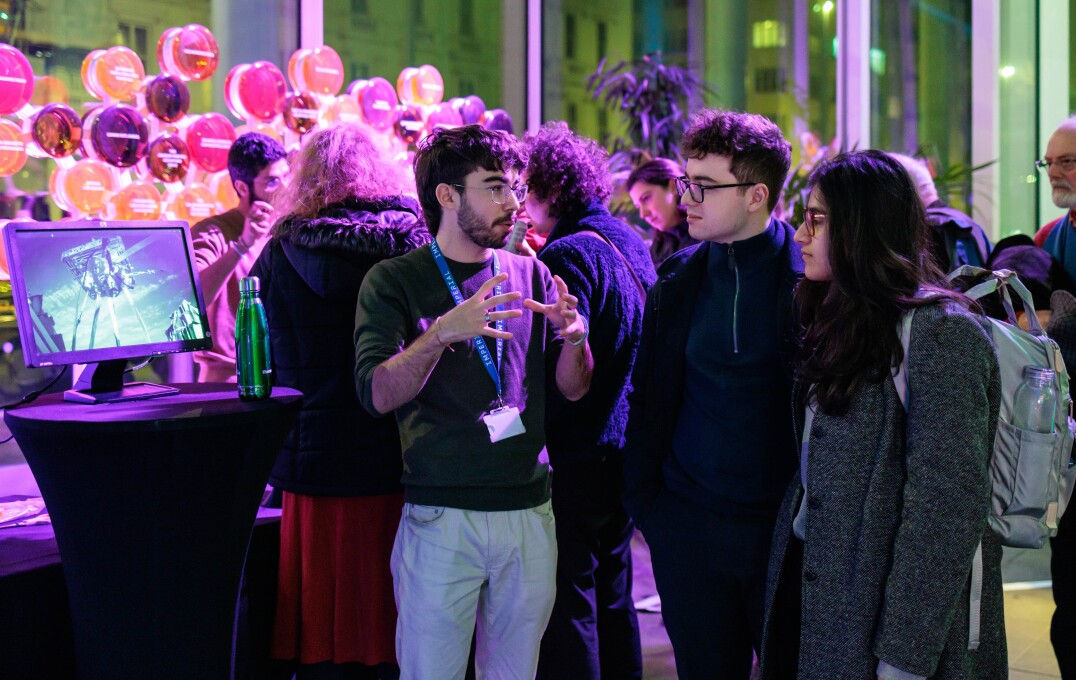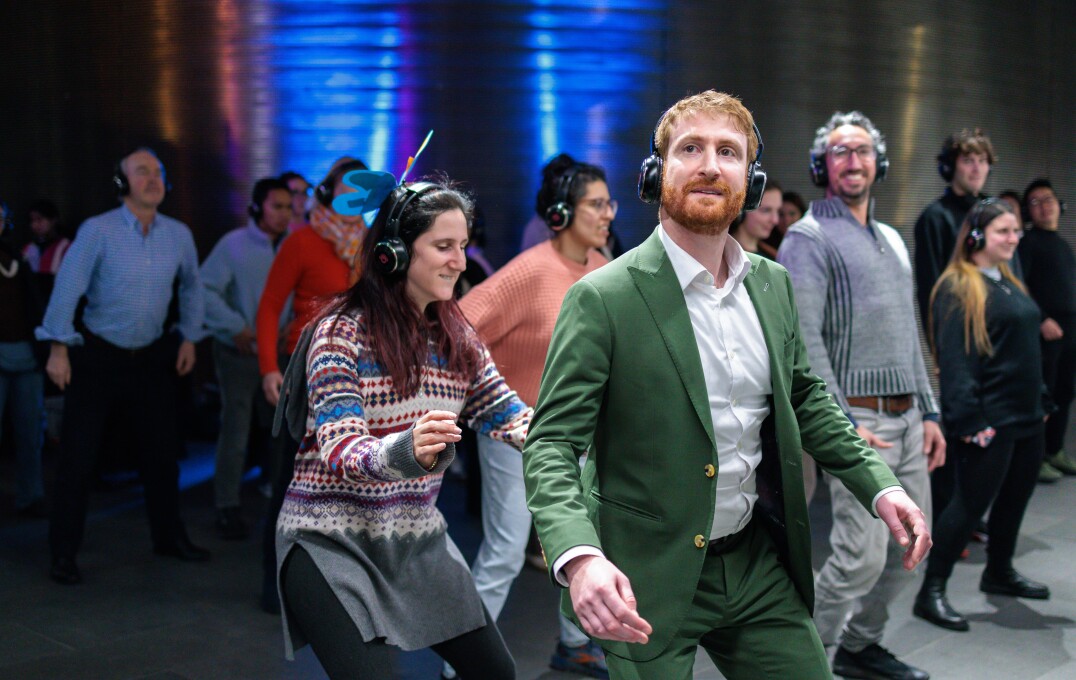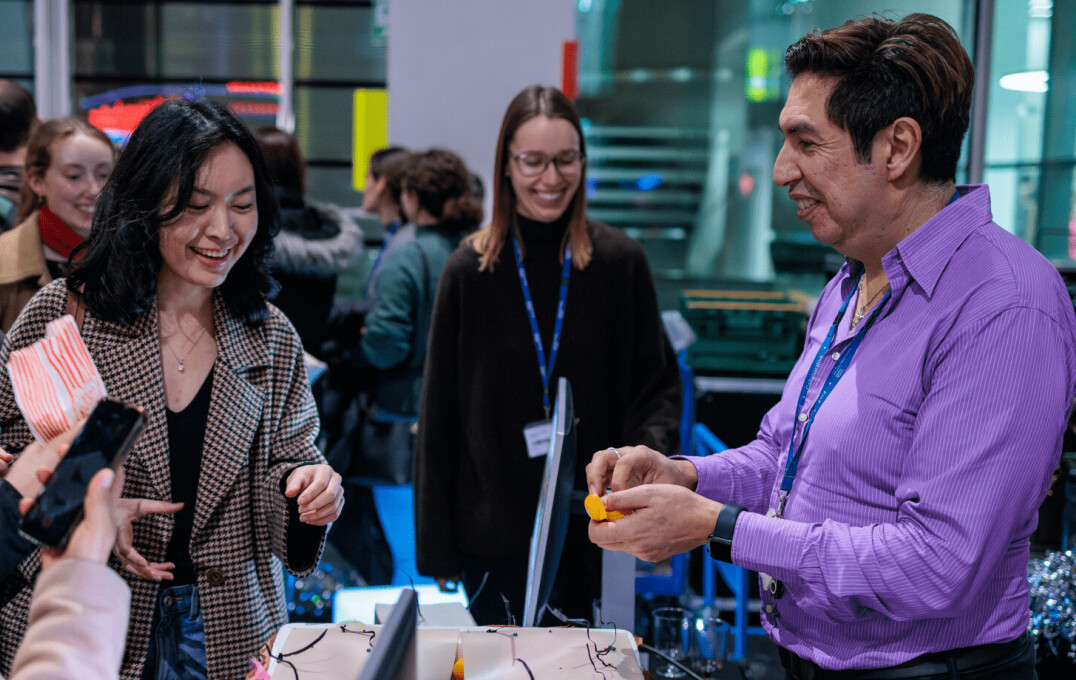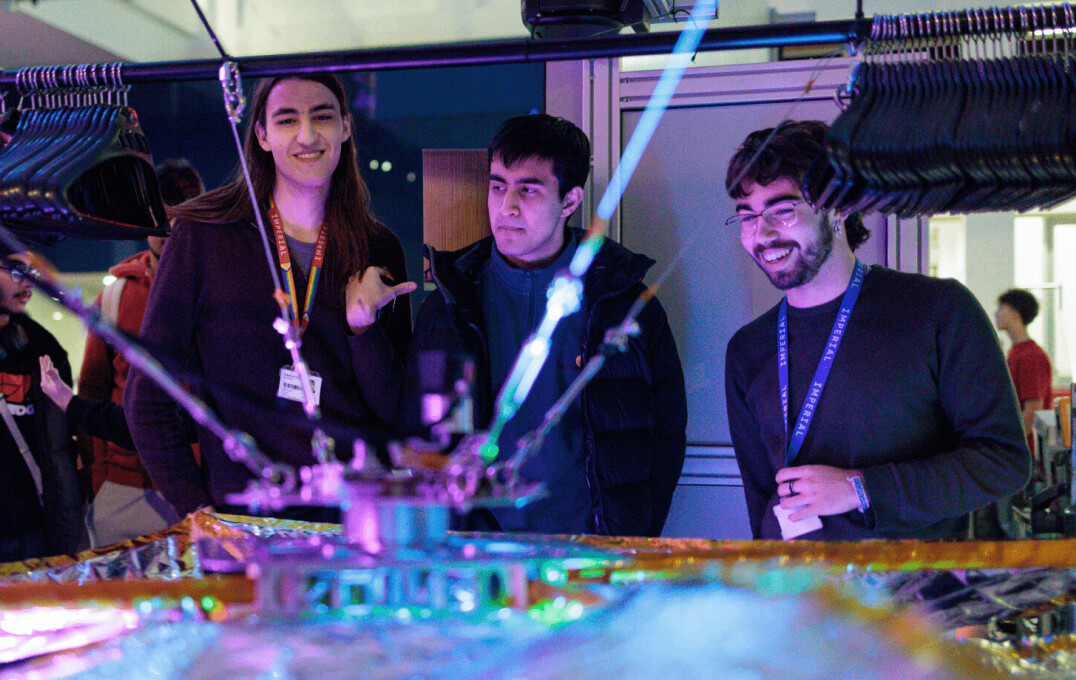QuEST at Imperial Lates: Exploring 'Weird Science' and the future of Quantum
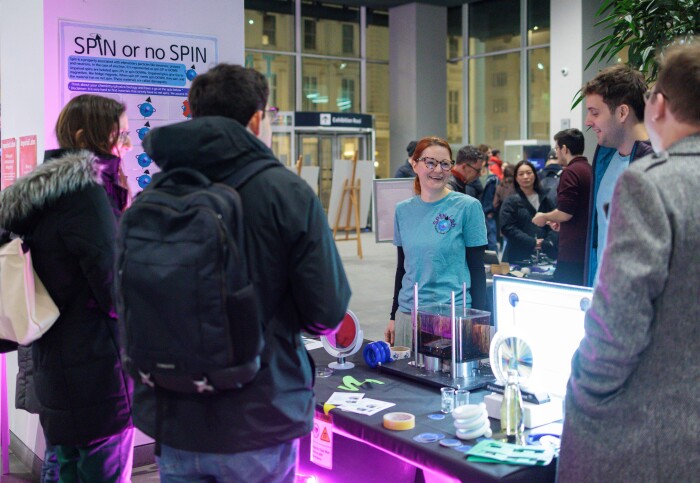
The Centre for Quantum Engineering, Science and Technology at Imperial showcased their latest quantum findings at Imperial Lates on Friday 7 February.
Imperial Lates are fun and social post-work events where visitors can interact with the latest scientific developments at Imperial College London, centred around a new theme for each evening. The theme for February's Imperial Lates event was 'Weird Science'.
QuEST researchers presented their work through demonstrations and discussions at various stalls at Imperial Lates. QuEST are interested in understanding, controlling, and applying fundamental quantum phenomena. Their work spans a range of quantum technologies, materials platforms, and applications.
Exploring 'Weird Quantum' at Imperial Lates
Evan Cryer-Jenkins, PhD student in the Department of Physics, demonstrated how single photon detectors (devices designed to collect signals from individual packets of light) could monitor for quantum cooling. This research could be used to improve ultra-sensitive sensors, such as those used in deep-space telescopes.
Dr Irena Nevjestić’s SPIN Lab showcased new strategies to control and detect the spin of electrons and light, including the use of twisted molecules. Research on controlling and detecting electron and light spin can be used for advanced data storage and encryption in next-generation hard drives, and by enabling more robust ways to encode and transmit information without the risk of interception.
The Complex Nanophotonics Group recently created materials capable of exceptional control of light in time and space, revealing strange aspects of wave-particle duality. One real world application of materials that control light in time and space is in ultra-secure optical communication, which could improve quantum communication networks, making them more reliable for secure data transfer.
QuEST PhD researchers Felix Burt, Dimitrie Cielecki and Sofia Moliner Bobo discussed quantum algorithms, teleportation and commercialisation – and why tomorrow’s technologies are generating so much excitement today.
Dr Steve Kolthammer, Senior Lecturer in the Department of Physics presented quantum particles as the 'Weirdest Thing in the Universe' to a packed-out audience, as part of the World’s Most Quirky Quiz.
Lastly, the London Centre for Nanotechnology, a collaborative research hub spanning Imperial, King’s College London, and UCL, hosted a quantum silent disco. Accompanied by a laboratory-inspired soundscape, researchers explained quantum principles through movement.
Celebrating the Year of Quantum Science and Technology 2025 (IYQ 2025)
The showcase at Imperial Lates followed the official launch of the International Year of Quantum Science and Technology (IYQ 2025) on Tuesday 4 February at UNESCO Headquarters in Paris. Read more about the IYQ launch on our website.
Visit the QuEST webpage to find out more about the IYQ 2025 events planned at Imperial College London.
Article text (excluding photos or graphics) © Imperial College London.
Photos and graphics subject to third party copyright used with permission or © Imperial College London.
Reporter
Kayleigh Brewer
Department of Materials
